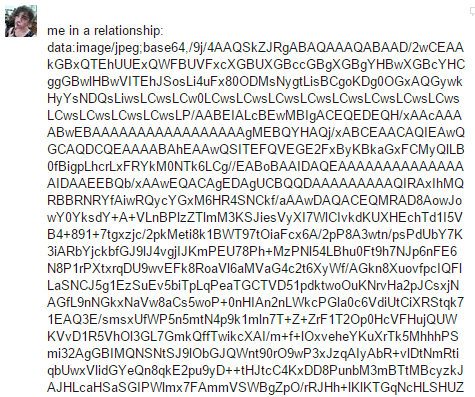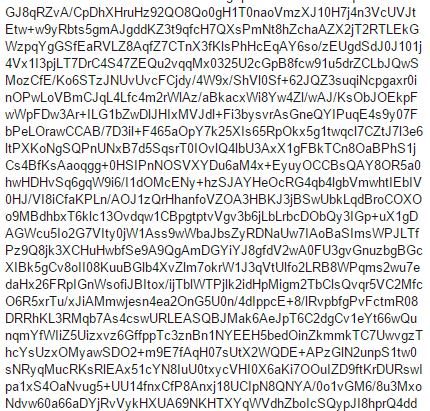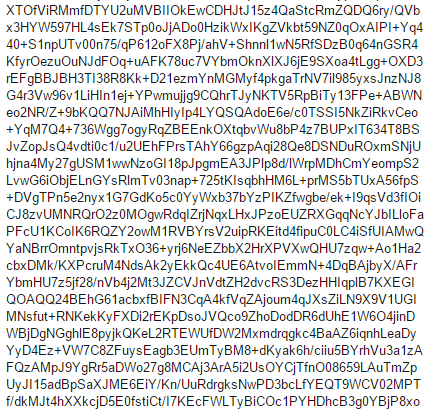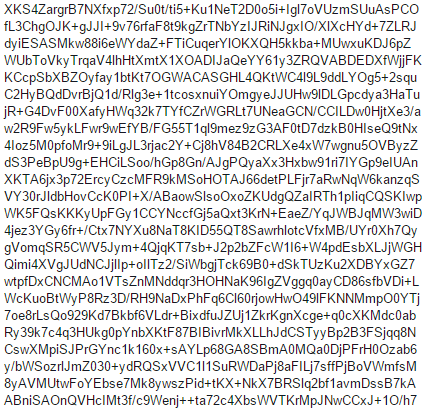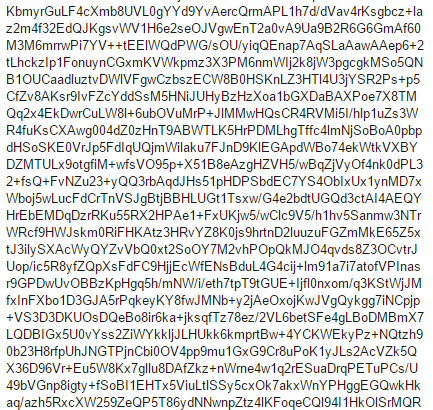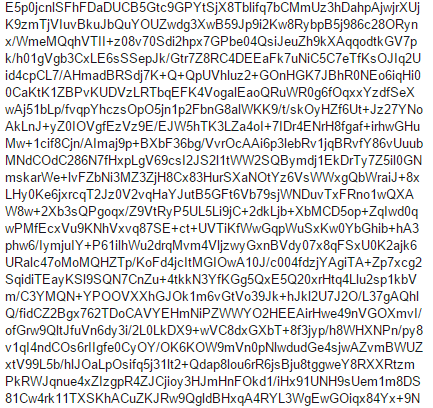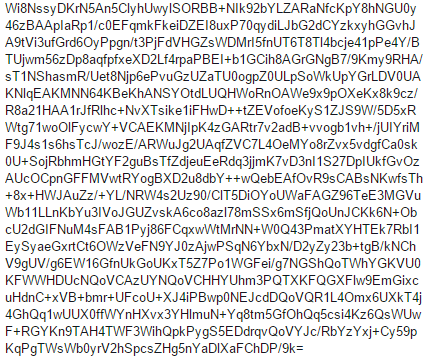In School They Used To Call Me Semipermeable Membrane For My Habit Of Allowing Some Things To Pass Through
in school they used to call me semipermeable membrane for my habit of allowing some things to pass through me
More Posts from Le-blanc-et-la-noire and Others
Otome Isekai Roundup
With the new year, I feel the need to make some kind of year-in-review list. So even though I've largely stopped reading comics (the desire to read ebbs and flows every six month), here are the otoisekai that stuck out to me the most in 2024
Crimson Lady/Resetting Lady

What can I even say about the GOAT? As we crawl towards a conclusion, the despair only grows. Death is the only answer, death must be avoided at all costs.
The Villainess Who is No Better than an Extra Cross-dresses to Be a Love Interest

I never talked about this one, namely because I'm not sure how to describe it without focusing on its wokeness. But it is woke. It's bizarrely, strangely woke, as well as genuinely enjoyable, but I keep getting fixated on all the genre-unusual progressiveness, like
BELIEVABLE female crossdressing in a shojo manga
her older brother is fat, a good person, and nobody ever comments on his weight (this point is the most shocking to me honestly)
Older brother is loudly supportive of his gnc sister and male cousin
Unclear if MC is gay, transmasc, or just doing this out of survival, but it says something that becoming a love interest was her *first* response
Boy the MC bewitched in girl form as a child is thrown off by her handsome appearance as an adult, yet awkwardly asks if she wants help breaking her engagement with a man
I forgot, originally he was the stock "sexist love interest who dials it back for his one true love" type, but this one shatters the mold not by making her the one girl he isn't mean to, but instead having him step back from his feelings and step UP as a genuine, actual, fr ally and continuing their friendship. Insane upgrade.

And it all feels pretty organic! They'll hint at complicated feelings from the people around her without grandstanding or molding medieval-y types into 21st century values

Like I can't emphasize enough how weird it is to see a child drawn like this and they're not evil
Behind Her Highness's Smile



I never talked about this one for the opposite reasons of the above. Um. Extremely horny ethicsplay* thriller about a mentally-challenged princess forced to marry a duke (who, in turn, was forced to marry a mentally-challenged princess). What if you were the abused sexy sensual prisoner princess forcibly married to a smoldering tall dark-haired duke AND you had brain damage.
Let me say that I enjoy this story sincerely and that her issues are not played lightly, but it is absolutely going for eroticism. Like oh nooo, you're not mentally competent enough to consent 😉😉 the duke could do whatever he wants and you're too dumb and doll-like to do anything about it😉😉😉 also your maids roofied you😉did I mention your sick bastard brother-king made you like this? And that he takes immense pleasure in that fact?🤫


But I know what you're thinking. Because I was thinking it. For chapters and chapters. "Surely this is a ruse. They didn't actually write a mentally handicapped female lead, not when it's already so horny. This is just to add to the fucked up atmosphere that feeds into everything because there's no fucking way anyone would keep to this premise. Wow she's really committing to the bit lol, not giving an inch. If I were gullible, I would believe they're actually going to fuck. Wait. Was that guy supposed to represent the writer talking to the reader? Hey?"
Did they? Read to find out :)
*I've always hated describing stories as problematic (positive). Ethicsplay, like the story is fucked up. They know it's fucked up, YOU know it's fucked up, and that's why you're here reading it.
A Splendid Revenge Story of a Super-Dreadnought Cheat Villainess

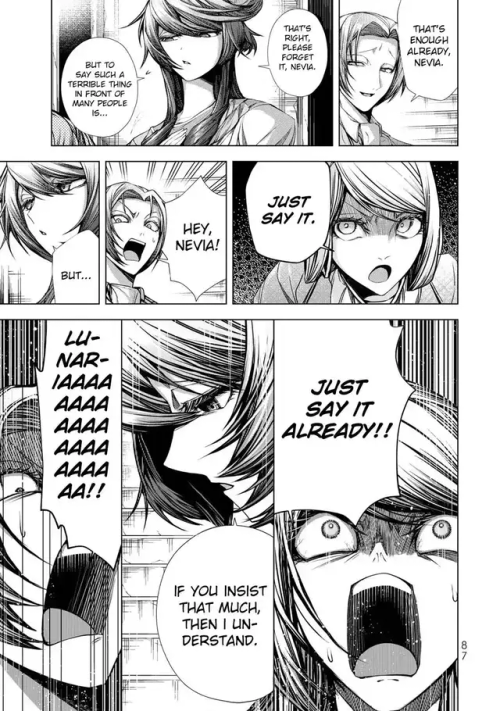
I don't have a lot to say about this one other than it's a refreshing revenge-centric OI. It's not treading new ground, but it executes the genre's tropes well. The villains are exaggerated caricatures of hubris, brazen leeches who've forgotten whose blood they've been surviving on, each with their own distinctive brand of arrogance introduced at a measured pace to keep the true hero's OPness from getting boring, all with a unique stylistic flair.

Princess revenge stories are frequently derailed by dull romance or the desire to reinvent capitalism, so the fact that Super-Dreadnought commits itself to smiting Lunaria's enemies without straying from the path makes it a high recommend.
Turning the Mad Dog into a Genteel Lord
I realized I don't have enough screenshots to prove my controversial opinion (that this is less puppy dog bf fantasy and more crypto-age reggressor/caretaker right up until they knew it would mess with the overall light and goofy tone), and I can't say those kinds of things without proof. so. I'll save that for another day.

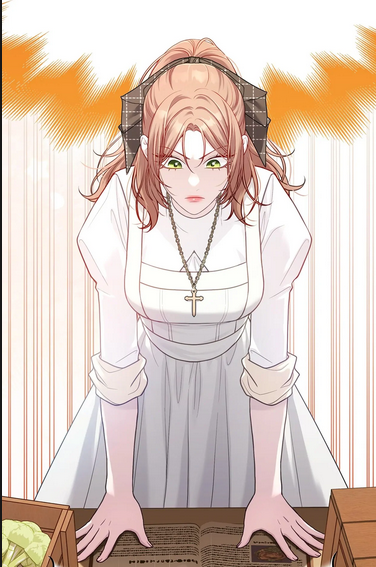
Anyway. Plot: Priestess Diarin, who is so hot I have more screenshots of her than any of the men, has to tame an abused beast-like 6'8 shredded ex-child soldier into a noble. She's the only one who can change him, she's the only one he can be vulnerable with. Middling plot, heavy slapstick/reaction face-based humor, but everyone is sexy and there are mild to moderate sadist-on-the-art-team impies, so. Recommend.



On an unrelated note can tappytoons please stop picking up manwha with good art? Their translation choices make me unreasonably mad.

If they draw shoes like this, please let Lezhin handle it? I can't take the comma stutters and obvious tone neutering.
it should be "works" both bc the French "oeuvres" has pretty much all of the same meanings, and bc the point of the chapter is faith and works (the question of whether a Christian is justified by right belief or by good actions) and "deeds" is simply not the word we use in English for that concept
I.i.4 Les Œuvres Semblables Aux Paroles
Works Answering Words: Wilbour
Works Resembling Words: Wraxall, Walton
Works Corresponding To Words: Hapgood
Works Matching Words: Denny
Works to Match Words: FMA
He Put His Money Where His Mouth Is: Rose
Deeds to Match Words: Donougher
do you guys know about the internet roadtrip? right now somewhere between 500 and 900 people are collectively 'driving' a car on google street view trying to make it to canada. it's fun i recommend it
just had a nice sudden cry thinking about the song "tempus est iocundum" and how much i wish i could meet the anonymous author of that song and many others from the remote past so i could tell them how much i like it, feeling sad that they may never know that even 800 years later someone sings their music every day in the shower and while opening at work and stuff... but i think my tears were tears of gladness too, because maybe through some mystery i will be able to speak to them someday! at times in my past it has felt really certain to me that one day all of time will be gathered up into one perfect moment and we will all get to greet each other forever


New stickers for my pals who love (trans) men soon
Sometimes it blows my mind that there are people that don’t wear glasses/contacts. Like they can literally see with no aid. Like they wake up and just be out here seeing. What a wild concept.
Wei Wuxian's Name - The Meaning of Wuxian
C Fans think this is likely the poem behind his name. And after analysing this poem, I think this is also the inspiration behind his character. OMG MXTX YOU’RE A GENIUS 😍.
Before I start, please inform me if you want to use this meta. This analysis is solely mine in every shape and form. There is only 1 Chinese interpretation online and it’s done with Baidu’s MTL. And if I do allow you to use it, PLEASE link it back to me because there’s a very high chance that I will refine this. This is the only translation/meta that I’m particular about so please respect my wishes. 🙏
The term “Wuxian” comes from the Ming Dynasty poem “Living Alone 闲居” by the poet Xiu Ben 徐贲. Sadly, there isn’t much information about the context so I’ve tried to interpret this to the best that I can. There are so many aspects in mdzs/cql that are reflected in his poem.
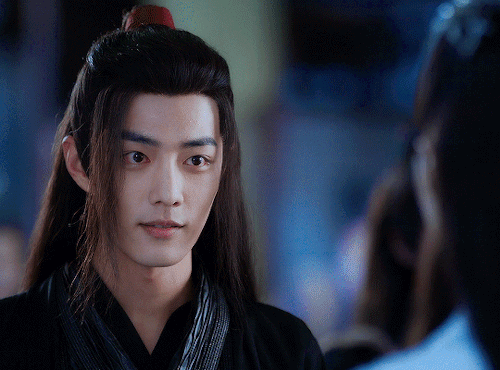
谢事返丘壑,退耕理田园。
To retire to the hills, to return to farming and prepare the land.
谢事 - To retire and get rid of mundane things, or to die
丘壑 - Hills and ravines. A secluded place in the mountains. A metaphor for somewhere far away.
退耕 - To resign from government service and to return to farming OR to convert land that was used for farming back to other use.
兹心获遂初,稍得洒中悁。
His compassionate heart has attained his wish, and slowly loses itself to anxiety in wine.
兹心 - I think this is related to 慈悲心 which refers to the concept of Compassion in Mahayana Buddhisim. 慈 refers to giving others happiness.
遂初 - This means attained his wish. OR to leave a government post and return to seclusion
悁 - This refers to anger, anxiety and melancholy.
(T/N: 获 and 得 both means to gain, so the poet is emphasising what he has gained)
振策升崇巘,扬舲溯长川。
Whipping the horse (or urging) to ascend the lofty mountain, sailing against the river that never ends
振策 - This term also means to urge or to push someone forward
长川 - It either describes a river OR something that’s never ending.
(T/N: some websites use the word 巘 (mountain), but others use 褵 (a marriage veil). I don’t have enough info, so I’ve gone with the mountain translation.)
惊湍信汨汨,清溜自涓涓。
The water gurgles flows steadily and swiftly, the crystal clear water from the small stream trickled slowly naturally.
(T/N: 汨汨 and 涓涓 are both sounds of the water flowing. 汨汨 refers to gurgling, 涓涓 flows slowly)
新兰艳迟日,密竹曳丛烟。
The new orchid blooms in spring, the dense growth of bamboo gather as they sway like the mist.
迟日 - this could mean late, or spring
烟 - This likely refers to 烟云 (literally translated to mist and cloud), but it also refers to a hermit deep within a faraway mountain.
东馆朝燕坐,西林暮独还。
To meditate in the morning the temple in Chang an, to return from the temple alone at dusk
东馆 - This either refers to the Eastern Temple, or a temple nearby Chang an. The dictionary says it’s 豫中 ‘Yuzhong Temple’ (term was used specifically the Han Dynasty), but I can’t find which temple it is specifically. LOL
西林 - This term does refer to the Xilin temple on Mount Lu. But subsequently it was referred to temples in general. As this a more modern poetry (aka Ming Dynasty), I’ve opted to use ‘temple’ instead.
(T/N: there’s a dawn to dusk imagery in this line, from 朝 (morning) to 暮 (dusk))
朋旧固云旷,山水聊夤缘。
Old friends are resolute and vast as the clouds, and to sit beneath the mountain and rivers to chat about establishing connections.
云 - The imagery of ancient clouds in ancient poetry is uh, not exactly regarded as a good thing. It’s usually related to sadness, or something that’s fickle (ie. a cloud is fickle, it changes shape whenever it wants to, sometimes you see it, and sometimes you don’t.
夤缘 - this means to climb up, establish connections and building relationships)
(T/N: This whole line is interesting and filled with contradictions. 固 refers to something resolute, but 云旷 means vast as the clouds. Of which, clouds symbolise something that’s anything but resolute. And in the second part, 聊 usually refers to a causal chat or even gossip, but 夤缘 refers to using connections to climb higher.)
居喧暂云遣,习静久乃便。
the noise at where I'm at at has stopped for now, dissipating like the wind. And so, the quiet life has persisted for long time.
居 - there are various meanings to this. The most common meaning is to stay/current location so I’ve gone with that
便乃 - this means “hence” or “so”
已幸驻灵药,复能讽瑶编。
It’s already lucky that the magical drug has rooted itself here, and I can memorise the precious books repeatedly
驻 - This is a very interesting word because it’s usually used to mean to garrison or to come to a standstill. It isn’t usually
复 - Repeatedly
讽 - This word usually means to or to mock. But I think it’s used as 讽书 in this case, which is to memorise.
既无羡鱼志,外物非所迁。Even if there isn’t any wishful thinking, the things outside are inhospitable and ever changing
无 - This means no.
羡鱼 - Wishful thinking. This is where Wei Wuxian’s name comes from (MXTX uses 无羡 instead of 羡鱼). This term comes from the idiom “临渊羡鱼,不如退而结网” which literally means, “instead of standing by the water to dream about catching fish, you should go home to make a net to actually catch a fish.” (ie. instead of being envious about another person’s achievements, we should put in the effort) So yes, Wei Wuxian does mean “do not (无) think wishfully and covert over the achievement of others” (羡)
非所 - Inhospitable, where someone cannot live normally
迁 - this means ever changing.
MY ANALYSIS
SO I HAVE SO MUCH FEELS. I believe that MXTX based some parts of Wei Wuxian’s behaviour according to this poem. Allow me to do a line by line analysis.
1st line: “To retire to the hills, to return to farming and prepare the land” - is this why our boy has such a fascination with retiring from his “post” and returning to the simple life? It’s interesting that the terms in this poem repeatedly emphasises on ‘retiring from government.” You could say that wwx’s life, starting from the time that he was a Jiang Clan disciple, and to being a soldier was a form of a post. So the author sets up the stage of what he thinks to “retire” is. And the “hills and the mountains” suggest a secluded far away. IDK about you but it screamed Cloud Recesses to me.
2nd line: “His compassionate heart has attained his wish,” - AGAIN I could scream about this. I feel that Wei Wuxian does embody the concept of “慈悲” in the simple sense of the word. “慈” as in compassionate. He brings joy to people around him and cares for others around him. 悲 as in sadness; he feels the suffering around him and hence he tries to deliver people from it. This is obviously demonstrated when he tries to save the Wen Clan. This line also emphasises that retiring away from all things political is what he wants. And the second part “slowly loses itself to anxiety in wine”, sadly he does this ever so frequently in the novel and almost amplified in CQL.
Line 3 and 4: “Whipping the horse (a metaphor for quickly, almost urgently) to ascend the lofty mountain, sailing against the river that never ends” “The water gurgles flows steadily and swiftly, the crystal clear water from the small stream trickled slowly naturally.” - in Line 3, the first part “ascending the lofty mountain, almost urgently so” reminds me of how he attained his ghost cultivation so quickly over a span of 3 months. And “sailing against the river that never ends” sounds very much like how he was always moving against the criticism of the masses in his first and second life. The lines about the water gurgling and trickling feels that the tide was always against him, be it swiftly or in small trickles.”
Line 5: “The new orchid blooms in spring, the dense growth of bamboo gather as they sway in the mist.” - the imagery of the orchid sounds a shoutout to Jinling. And the dense bamboo dusting in the mist reminds me of the parts where they were in the cold pond. I’m not sure if the CQL directors were equally inspired by this. (I can’t remember if there were bamboos in Cloud Recesses novel wise. 😂😂)
Line 6: “To meditate in the morning the temple in Chang an, to return from the temple alone at dusk” - HMM I don’t have a clear inspiration for this line unfortunately. But it could be a reference to the days spend in Cloud Recesses. The Lan 蓝 was a Buddhism references so it totally fit the bill. (I’ve mentioned it before in Taming Wangxian but if you can’t remember it, well that’s okay, I am to bring it back here eventually)
Line 7: “Old friends are resolute and vast as the clouds, and to sit beneath the mountain and rivers to chat about establishing connections.” - again the comparison of friends with clouds. It does suggest that he has a lot of friends; friends who are as fickle as clouds who aren’t there when the time calls for it. And as for the ones who are “resolute”… well we know who they are. And as for “establishing connections”, this is a common theme in the novel. It actually reminded me of JGY, who was essentially trying to curry favour to promote himself politically.
Line 8-9: “the noise at where I am at has stopped for now, dissipating like the wind. And so, the quiet life has persisted for long time.” “It’s already lucky that the magical drug has rooted itself here, and I can memorise the precious books repeatedly” lmao does the magic drug refer to the incense burner haha 😂😂 the vibe of the last two lines remind me of the end of the novel, whereby the “noise” of society has faded and he’s back to the quiet life. And as for the books that he can read, I’m guessing that’s probably referring to the Lan Family’s library
Line 10: “Even if there isn’t any wishful thinking, the things outside are inhospitable and ever changing” this is WWX and the moral of the story I guess?
(There were about 60 different references and I'm too lazy to link them all lol. They were mostly dictionary links or other poems that used the words in a similar manner. If you want a reference for a particular phrase, please let me know. XD)
In case you missed it, I’ve also analysed Wei Ying previously.
Additional Meta
More MDZS Meta
Meaning of Wei Ying
Ender's Game (novel)

Is Ender Wiggin (pictured above as the little brother from Malcolm in the Middle) guilty of xenocide?
Actually, let's first answer a different, but related, question:
What game does the title "Ender's Game" refer to?
It's not as simple a question as it seems. There are three games that have a prominent role in the plot, all very different from one another.
The obvious answer is the Battle School zero-gravity game, where teams of competitors play glorified laser tag in a big empty cube. In terms of page count, most of the book is dedicated to this game. It's also the game depicted on the cover of the edition above.
Yet this game vanishes during the story's climax, when Ender is given a new game to play, a game he is told is a simulator of spaceship warfare. This "game" turns out to not be a game at all, though; after annihilating the alien homeworld in the final stage, Ender learns that he was actually commanding real ships against real enemies the whole time, and that he just singlehandedly ended the Human-Bugger war forever via total xenocide of the aliens. This is both the final game and the most consequential to the plot, despite the short amount of time it appears.
There's also a third game, a single-player video game Ender plays throughout the story. The game is procedurally generated by an AI to respond to the player's emotional state, and is used as a psychiatric diagnostic for the players. Of the three games, this is the one that probes deepest into Ender's psyche, that most defines him as a person; it's also the final image of the story, as the aliens build a facsimile of its world in reality after psychically reading Ender's mind while he xenocides them.
Because all three games are important, the easiest answer might be that the question doesn't matter, that the story is called Ender's Game not to propose this question at all but simply because the technically more accurate "Ender's Games" would improperly suggest a story about a serial prankster.
Fine. But why does the title use the possessive "Ender's" at all?
He does not own any of these games. He did not create them. He does not facilitate them. All of these games, even the simulator game, predate his use of them as a player, were not designed with him in mind, were intended to train and assess potential commanders for, ostensibly, the hundred years since the last Human-Bugger war.
It's in this question that we get to the crux of what defines Gamer literature.
These games are Ender's games because he dominates them into being about him. He enters a rigidly-defined, rules-based system, and excels so completely that the games warp around his presence. In the Battle School game, the administrators stack the odds against Ender, thereby rendering every other player's presence in the game irrelevant except in their function as challenges for Ender to overcome. The administrators acknowledge this in an argument among themselves:
"The game will be compromised. The comparative standings will become meaningless." [...] "You're getting too close to the game, Anderson. You're forgetting that it is merely a training exercise." "It's also status, identity, purpose, name; all that makes these children who they are comes out of this game. When it becomes known that the game can be manipulated, weighted, cheated, it will undo this whole school. I'm not exaggerating." "I know." "So I hope Ender Wiggin truly is the one, because you'll have degraded the effectiveness of our training method for a long time to come."
In this argument, Anderson views the game the way games have been viewed since antiquity: exercises in acquiring honor and status. This honor is based on the innate fairness inherent to games as rule-based systems, which is why in ancient depictions of sport the chief character is often not a competitor but the host, who acts as referee. In Virgil's Aeneid, for instance, the hero Aeneas hosts a series of funeral games (the games themselves intended as an honor for his dead father). Despite being the principal character of the epic, Aeneas does not compete in these games. Instead, he doles out prizes to each competitor based on the worthiness they display; his fairness marks him symbolically as a wise ruler. The Arthurian tournament is another example, where Arthur as host is the principal character, and the knights (Lancelot, Tristan, etc.) who compete do so primarily to receive honors from him or his queen.
In Ender's Game, it is the antagonistic figure Bonzo Madrid who embodies this classical concept of honor; the word defines him, is repeated constantly ("his Spanish honor"), drives his blistering hatred of Ender, who receives both unfair boons and unfair banes from the game's administrators, who skirts the rules of what is allowed to secure victory. Bonzo is depicted as a stupid, bull-like figure; his honor is ultimately worthless, trivially manipulated by Ender in their final fight.
Meanwhile, it's Ender's disregard for honor, his focus solely on his namesake -- ending, finishing the game, the ends before the means -- that makes him so valuable within the scope of the story. He is "the one," as Anderson puts it, the solipsistically important Gamer, the Only I Play the Game-r, because the game now matters in and of itself, rather than as a social activity. In the Aeneid and in Arthur, the competitors are soldiers, for whom there is a world outside the game. Their games are not a substitute for war but a reprieve from it, and as such they are an activity meant to hold together the unifying fabric of society. The values Anderson espouses (status, identity, purpose, name) are fundamentally more important in this social framework than winning (ending) is.
Ender's game, as the Goosebumps-style blurb on my 20-year-old book fair edition's cover proclaims, is not just a game anymore. Its competitors are also soldiers, but the game is meant to prepare them for war; the spaceship video game is actual war. And as this is a war for the survival of the human race, as Ender is told, there is no need for honor. The othered enemy must be annihilated, without remorse or mercy.
This ethos of the game as fundamentally important for its own sake pervades Gamer literature beyond Ender's Game. In Sword Art Online (which I wrote an essay on here), dying in the game is dying in real life, and as such, only Kirito's ability to beat the game matters. Like Ender, Kirito is immediately disdained by his fellow players as a "cheater" (oh sorry, I mean a "beater") because he possesses inherent advantages due to being a beta player. In an actual game, a game that is only a game, Kirito's cheat powers would render the game pointless. What purpose does Kirito winning serve if he does it with Dual Wielding, an overpowered skill that only he is allowed to have? But when a game has real stakes, when only ability to win matters, it is possible to disregard fairness and see the cheater as heroic.
This notion of the "cheat power," a unique and overpowered ability only the protagonist has, is pervasive in post-SAO Gamer literature. To those for whom games are simply games, such powers can only be infuriating and obnoxious betrayals of the purpose of games; to those for whom games mean more than just games, for whom games have a primacy of importance, these powers are all that matter.
That's the core conceit of Gamer literature: the idea that the Game is life, that winning is, in fact, everything.
What sets Ender's Game apart from Sword Art Online is that it creates the inverted world where the Game matters above all, but then draws back the curtain to reveal the inversion. The Buggers are, in fact, no longer hostile. They are not planning to invade Earth again, as Ender has been told his entire life. The war, for them, is entirely defensive, and Ender is the aggressor. And due to Ender's singleminded focus on Ending, on winning, on disregarding honor and fairness, he ultimately commits the xenocide, erases an entire sentient species from existence. He wins a game he should never have been playing.
The obvious counterargument, the one I imagine everyone who has read this book thought up the moment I posed the question at the beginning of this essay, is that Ender did not know he was committing xenocide. The fact that the combat simulator game was not a game was withheld from him until afterward. Plus, he was a child.
Salient arguments all. Ones the book itself makes, via Ender's commander, Graff, to absolve him of sin at the end. They're probably even correct, in a legal sense (I'm not a legal scholar, don't quote me), and in a moral sense. In real life, it would be difficult to blame a 10-year-old in those circumstances for what he did. But in the thematic framework of Ender's Game the book, these arguments are completely inadequate.
Ender has been playing a fourth game the entire story. And this is the only game he doesn't win.
A game is defined by its system of control and limitation over the behavior of the players. A game has rules. His whole life, Ender has been playing within the rules of the system of control his military commanders place upon him.
Their control extends even before he was born; as a third child in a draconian two-child-only world, his existence is at the behest of the government. Graff confirms this to Ender's parents when he recruits him to Battle School: "Of course we already have your consent, granted in writing at the time conception was confirmed, or he could not have been born. He has been ours since then, if he qualified." Graff frames this control utterly, in terms of possession: "he has been ours." He does not exaggerate. Since Ender was young, he has had a "monitor" implanted in his body so the army could observe him at all times, assess whether he "qualifies"; even the brief moment the monitor is removed is a test. "The final step in your testing was to see what would happen when the monitor came off," Graff explains after Ender passes the test by murdering a 6-year-old. Conditions are set up for Ender, similar to the unfair challenges established in the Battle School game; he is isolated from his peers, denied practice sessions, held in solitary confinement on a remote planetoid. It's all in service of assessing Ender as "the one."
Ender wins this game in the sense that he does, ultimately, become "the one" -- the one Graff and the other military men want, the xenocider of the Buggers. He fails this game in the sense that he does not break it.
The other three games Ender plays, he breaks. Usually by cheating. In the single-player psychiatry game, when presented with a deliberately impossible challenge where a giant gives him two glasses to pick between, Ender cheats and kills the giant. "Cheater, cheater!" the dying giant shouts. In the Battle School game, Ender is ultimately confronted by insurmountable odds: 2 armies against his 1. He cannot outgun his opponent, so he cheats by using most of his troops as a distraction so five soldiers can sneak through the enemy's gate, ending the game. At the school, going through the gate is traditionally seen as a mere formality, something done ceremonially once the enemy team is wiped out (there's that honor again, that ceremony), but it technically causes a win. Even Anderson, the game's administrator, sees this as a breach of the rules when Ender confronts him afterward.
Ender was smiling. "I beat you again, sir," he said. "Nonsense, Ender," Anderson said softly. "Your battle was with Griffin and Tiger." "How stupid do you think I am?" Ender said. Loudly, Anderson said, "After that little maneuver, the rules are being revised to require that all of the enemy's soldiers must be frozen or disabled before the gate can be reversed."
(I include the first part of that quote to indicate that Ender all along knows who he is really playing this game against -- the administrators, the military men who control every facet of his life.)
Ender beats the war simulator game in a similar fashion. Outnumbered this time 1000-to-1, he uses his soldiers as sacrifices to sneak a single bomb onto the alien's homeworld, destroying it and committing his xenocide. Ender himself sees this maneuver as breaking the rules, and in fact falsely believes that if he breaks the rules he will be disqualified, set free from the fourth game: "If I break this rule, they'll never let me be a commander. It would be too dangerous. I'll never have to play a game again. And that is victory." The flaw in his logic comes not from whether he's breaking the rules of the game, but which game he is breaking the rules of. It's not the fourth game, Ender's game, but the war simulator game, simply a sub-game within the confines of the fourth game, a sub-game the fourth game's administrators want him to break, a sub-game that gives Ender the illusion of control by breaking. When Ender tells his administrators about his plan, the response he receives almost taunts him to do it:
"Does the Little Doctor work against a planet?" Mazer's face went rigid. "Ender, the buggers never deliberately attacked a civilian population in either invasion. You decide whether it would be wise to adopt a strategy that would invite reprisals."
(And if it wasn't clear how much the administrators wanted him to do this all along, the moment he does it, they flood the room with cheers.)
Ender wins his games by cheating -- by fighting the rules of the game itself -- and yet he never cheats at the fourth game, the game of his life.
In this fourth game, he always plays by the rules.
In the inverted world of Gamer lit, where games define everything, including life and death, it's a common, even natural progression for the Gamer to finally confront the game's administrator. Sword Art Online ends when Kirito defeats Akihiko Kayaba, the developer. In doing so, Kirito exceeds the confines of the game, not simply by ignoring its rules and coming back to life after he's killed, but by demonstrating mastery against the game's God. Afterward, Sword Art Online truly becomes Kirito's Game, with nobody else able to lay claim to the possessive. Kirito demonstrates this control at the end of the anime by recreating Sword Art Online's world using its source code, completing the transition into a player-administrator.
(Though I wonder, how much of a class reading could one give to this new brand of Gamer lit? If classical games were told from the perspective of the one who controlled them, then is there not something innately anti-establishment in Kirito overcoming the controller? This is the gist of many other death game stories, like The Hunger Games, though none of them may be the most sophisticated takes on the subject, more empty fantasy than anything else.)
Ender never fights or defeats his administrators. He never even tries, other than rare periods of depressive inactivity. He doesn't try even though the option is proposed to him by Dink Meeker, an older student whom Ender respects:
"I'm not going to let the bastards run me, Ender. They've got you pegged, too, and they don't plan to treat you kindly. Look what they've done to you so far." "They haven't done anything except promote me." "And she make you life so easy, neh?" Ender laughed and shook his head. "So maybe you're right." "They think they got you on ice. Don't let them." "But that's what I came for," Ender said. "For them to make me into a tool."
Instead, Ender finds comfort in the control exerted on his life. When sent to Earth on leave, he seeks out a lake that reminds him of living in Battle School.
"I spend a lot of time on the water. When I'm swimming, it's like being weightless. I miss being weightless. Also, when I'm here on the lake, the land slopes up in every direction." "Like living in a bowl." "I've lived in a bowl for four years."
Because of this, Ender never cheats against Graff. He could; Graff states several times that Ender is smarter than him, and the fact that they have Ender fighting the war instead of Graff is proof he believes it. But Ender never considers it. He never considers gaming the system of his life.
If Gamer literature emphasizes the inversion of the world order, where games supersede reality in importance (and, as in Sword Art Online, only through this inverted order is one able to claim real power by being a Gamer), then Ender's Game acknowledges both sides of the inversion. For Ender, the games he plays are not simply games anymore. The psychology game, the Battle School game, the war simulator game; all of these he must win at all costs, even if it requires disrespecting the foundational purpose of these games. But his real life? Ender wants that to be a game, craves it to be a game, can't live unless the walls slope up around him like a bowl, can't stand it unless there is a system of control around him. He does what Graff tells him, even though he recognizes immediately that Graff is not his friend, that Graff is the one isolating him from others, rigging things against him. He does what Graff tells him all the way up to and including xenocide, because Ender cannot tell game from real life. That's the core deception at the end: Ender is playing a game that's actually real and he doesn't know it -- or refuses to acknowledge it, since nobody has ever tricked the genius Ender before this point.
Actually, that's not true. They tricked him twice before. Ender twice attacks his peers physically, with brutal violence. The administrators conceal from him that he murdered both his foes; he simply thinks he hurt them. The only way to trick Ender is to do so in a way that insulates him from the consequences of his actions. The only way he will allow himself to be tricked.
So, is Ender guilty of xenocide?
Under it all, Ender believes he is.
The dying Buggers, after reading Ender's mind, recreate the psychology game in the real world. The story ends when Ender finds this recreation, yet another blurring of the lines between game and reality.
The psychology game is different from the other games Ender plays, because nobody expects him to win it. Its purpose is not to be won, simply to assess his mental health. Yet Ender approaches it like the other games, cheats at it and systematically kills all his enemies until he reaches a place called The End of the World. (Another End for Ender.) His drive to win, to dominate, does not come solely from the pressures of the system around him, but from deep within himself, which is what Ender fears the most. But it is here, at The End of the World, where Ender finds atonement, both in the game and in the game-made-real. In the game, he kisses his opponent instead of killing them, and reaches a resolution he is happy with. He stops playing the game after doing this, though the game seems to continue (when an administrator asks him why he stopped playing it, he says "I beat it"; the administrator tells him the game cannot be beaten). It is through this act of love that Ender can escape the game-like system of control that puppeteers him no matter how smart and clever he is or thinks he is.
In the game-made-real, Ender finds his atonement in the same place, The End of the World. The Buggers left for him here, in this place that they (reading his mind) understood as the location of his mercy and compassion, an egg that can repopulate their species. Through this egg, Ender is given the chance to undo his xenocide. But that chance is also contingent on what The End of the World means to Ender, an end to the game, not simply the games he plays but the fourth game, the game of his life. Ender's Game.
-
 lazyzineknightwobbler liked this · 1 week ago
lazyzineknightwobbler liked this · 1 week ago -
 yeahawvampire liked this · 1 week ago
yeahawvampire liked this · 1 week ago -
 importantpiratesgetscaredofme reblogged this · 1 week ago
importantpiratesgetscaredofme reblogged this · 1 week ago -
 importantpiratesgetscaredofme liked this · 1 week ago
importantpiratesgetscaredofme liked this · 1 week ago -
 sirspeep reblogged this · 1 week ago
sirspeep reblogged this · 1 week ago -
 twelfthnightyuri liked this · 1 week ago
twelfthnightyuri liked this · 1 week ago -
 arecipeforfeels liked this · 1 week ago
arecipeforfeels liked this · 1 week ago -
 lemonsharkknight liked this · 1 week ago
lemonsharkknight liked this · 1 week ago -
 withyourbrains reblogged this · 1 week ago
withyourbrains reblogged this · 1 week ago -
 into-another-nightmare reblogged this · 1 week ago
into-another-nightmare reblogged this · 1 week ago -
 into-another-nightmare liked this · 1 week ago
into-another-nightmare liked this · 1 week ago -
 spacepunksupreme reblogged this · 1 week ago
spacepunksupreme reblogged this · 1 week ago -
 richardnixon reblogged this · 1 week ago
richardnixon reblogged this · 1 week ago -
 weirdo19 liked this · 1 week ago
weirdo19 liked this · 1 week ago -
 pbstarstorm2 liked this · 1 week ago
pbstarstorm2 liked this · 1 week ago -
 chasemann liked this · 1 week ago
chasemann liked this · 1 week ago -
 johntcarter70 reblogged this · 1 week ago
johntcarter70 reblogged this · 1 week ago -
 aprilshowe liked this · 1 week ago
aprilshowe liked this · 1 week ago -
 imatmywormrightnow reblogged this · 1 week ago
imatmywormrightnow reblogged this · 1 week ago -
 badass-skeleton reblogged this · 1 week ago
badass-skeleton reblogged this · 1 week ago -
 good-fwiend-in-wome reblogged this · 1 week ago
good-fwiend-in-wome reblogged this · 1 week ago -
 fandomsfan1 reblogged this · 1 week ago
fandomsfan1 reblogged this · 1 week ago -
 atropus-belladonna reblogged this · 1 week ago
atropus-belladonna reblogged this · 1 week ago -
 atropus-belladonna liked this · 1 week ago
atropus-belladonna liked this · 1 week ago -
 downsideupsnake reblogged this · 1 week ago
downsideupsnake reblogged this · 1 week ago -
 onetimemacareblogs reblogged this · 1 week ago
onetimemacareblogs reblogged this · 1 week ago -
 four-leafed-queer-gal reblogged this · 1 week ago
four-leafed-queer-gal reblogged this · 1 week ago -
 four-leafed-queer-gal liked this · 1 week ago
four-leafed-queer-gal liked this · 1 week ago -
 bacony-cakes reblogged this · 1 week ago
bacony-cakes reblogged this · 1 week ago -
 tightlemon reblogged this · 1 week ago
tightlemon reblogged this · 1 week ago -
 imatmywormrightnow reblogged this · 1 week ago
imatmywormrightnow reblogged this · 1 week ago -
 imatmywormrightnow liked this · 1 week ago
imatmywormrightnow liked this · 1 week ago -
 chipadip reblogged this · 1 week ago
chipadip reblogged this · 1 week ago -
 passion8alot reblogged this · 1 week ago
passion8alot reblogged this · 1 week ago -
 saganofstars liked this · 1 week ago
saganofstars liked this · 1 week ago -
 fisherofish liked this · 1 week ago
fisherofish liked this · 1 week ago -
 aegontheegg02 liked this · 1 week ago
aegontheegg02 liked this · 1 week ago -
 fun-fun-chaos liked this · 1 week ago
fun-fun-chaos liked this · 1 week ago -
 sunny-luna reblogged this · 1 week ago
sunny-luna reblogged this · 1 week ago -
 absolutegremlin liked this · 1 week ago
absolutegremlin liked this · 1 week ago -
 crisismoth reblogged this · 1 week ago
crisismoth reblogged this · 1 week ago -
 crisismoth liked this · 1 week ago
crisismoth liked this · 1 week ago -
 faggotcowboys reblogged this · 1 week ago
faggotcowboys reblogged this · 1 week ago -
 jelreth reblogged this · 1 week ago
jelreth reblogged this · 1 week ago -
 xluxsolarisx liked this · 1 week ago
xluxsolarisx liked this · 1 week ago -
 stanielmolloy liked this · 1 week ago
stanielmolloy liked this · 1 week ago -
 cherryredhell reblogged this · 1 week ago
cherryredhell reblogged this · 1 week ago -
 snakesarebitingatmyheels reblogged this · 1 week ago
snakesarebitingatmyheels reblogged this · 1 week ago -
 thornswithoutrosesorleaves reblogged this · 2 weeks ago
thornswithoutrosesorleaves reblogged this · 2 weeks ago -
 thornswithoutrosesorleaves liked this · 2 weeks ago
thornswithoutrosesorleaves liked this · 2 weeks ago


